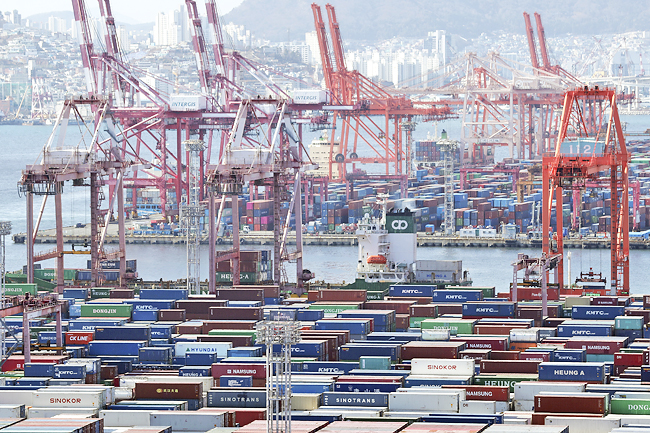SEOUL (AP) – South Korea logged its biggest monthly trade deficit ever, at USD12.7 billion in January, as exports of computer chips and other high-tech items sank and costs for importing oil and gas surged, the trade ministry said yesterday.
The growing shortfall underscored how the war in Ukraine is straining the global economy, keeping prices for key resources like crude oil and nickel high even after they fell back from spikes in 2022. South Korea’s export-dependent economy has logged a deficit for 11 consecutive months, the longest streak since 1997 when it was on the cusp of the Asian financial crisis.
Exports of computer chips, South Korea’s most important product, declined by nearly 45 per cent last month from a year earlier because of slowing demand and falling chip prices, according to South Korea’s Ministry of Trade, Industry and Energy.
The trade data was released after South Korean chip giant Samsung Electronics reported that its profit for the last quarter plunged by nearly 70 per cent in what it described as a “significantly” deteriorated business environment for its semiconductors and consumer electronics products.
Chip making is highly cyclical, and tech industries have swung from stark shortages for many computer chips, felt across many industries including automaking, to a glut.
Samsung said chip prices fell sharply amid weakened demand as clients adjusted their inventories in face of “deepening uncertainties” in the global economy, a problem the company says will likely extend through this quarter.
Yesterday, SK Hynix, another major South Korean chipmaker, reported an operating loss of KRW1.7 trillion (USD1.4 billion) for the October-December period, which marked its first quarterly deficit since 2012.
“With uncertainties still lingering, we will continue to reduce investments and costs, while trying to minimise the impact of the downturn by prioritising markets with high growth potential,” the company said in a statement.






